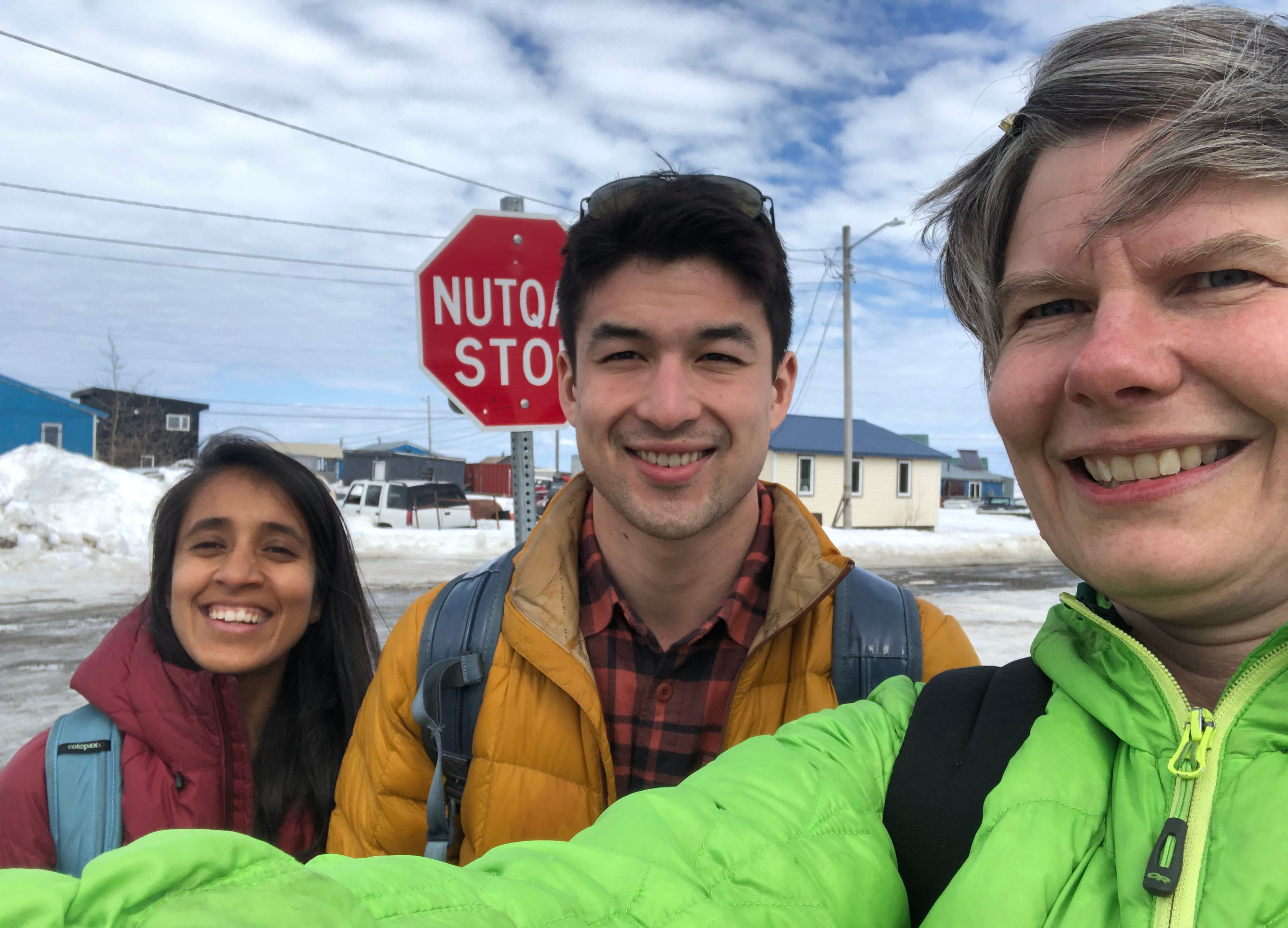Lots of energy at the Northwest Arctic Borough Energy Steering Committee meeting
May 29, 2024
ACEP members participated in the Northwest Arctic Borough Energy Steering Committee spring meeting hosted in Kotzebue in April. The meeting was especially energized with the anticipation of about $54 million in Department of Energy Office of Clean Energy Demonstrations grants.
Paul McKinley presented to the steering committee on ACEP’s contribution to the DOE-funded Equitable, Affordable & Resilient Nationwide Energy System Transition, or EARNEST, grid resilience project, which focuses on partnering with Kotzebue Electric Association to conduct modeling and develop decision-making tools to improve grid reliability in remote communities.
McKinley’s presentation addressed the importance of long-duration energy storage in supporting a primarily renewable microgrid and the work that ACEP is doing through EARNEST to explore hydrogen as a versatile energy storage medium in Kotzebue.
While many of the steering committee discussions focused on near-term projects, such as deployments of solar panels and heat pumps throughout the borough, the longer-term goals of EARNEST and interest in hydrogen led to productive discussions amongst the group.
The discussion comprises the first instance of community engagement on EARNEST in Alaska, the continuation of which will be vital over the project’s three-year lifetime.

From left to right: Shivani Mathur Bhagat, Paul McKinley and Michelle Wilber pose for a selfie in Kotzebue for the Northwest Arctic Borough Energy Steering Committee meeting.
“There is an enormous benefit in hearing real-time feedback from community representatives on which elements of our research, especially those that involve energy scenario planning, are most likely to be useful and impactful,” McKinley said. “It’s equally important to hear which aspects are not a priority, so that we can make adjustments to our research questions and modeling moving forward.”
Shivani Mathur Bhagat and Michelle Wilber joined the meeting as part of a Sloan-funded research project looking at energy sovereignty in the energy transition. They interacted with community members and stakeholders participating in NAB energy issues, and learned about multiple ongoing energy-related efforts in the region.
This was Bhagat’s first time in Kotzebue. “What particularly stood out to me in these conversations was the eagerness of communities to explore new technologies and innovate to reduce electric and heating costs for the community, while also tackling climate change,” she said.
“I was impressed by the energy leadership offered by NAB and NANA Regional Corporation in the Northwest region and also the collaborative approach of communities to achieve their energy security and energy justice goals.”
Robert Bensin, while traveling on another ACEP project, was also able to attend the Energy Steering Committee meeting and meet with industry leaders to discuss workforce development and training opportunities in the NAB region, including members of KEA, Alaska Technical Center and NANA.
Dominique Pride joined remotely to present an update on a National Science Foundation’s Navigating the New Arctic initiative project on diesel-free heating in Kotzebue, which is moving along with baseline fuel-use data collection before implementing home upgrades and/or electric heating upgrades to study their effectiveness at saving diesel.


